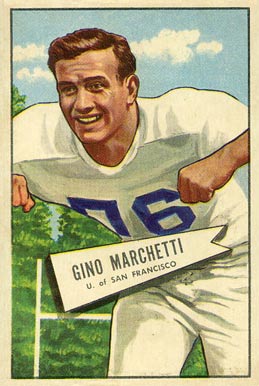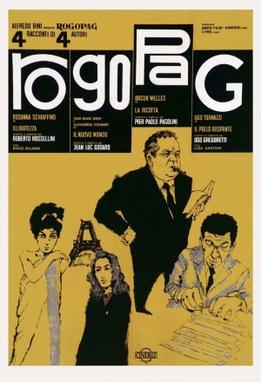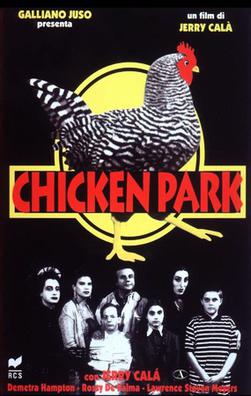Plot
The famous singing chicken Gino, kidnapped by Vito, is taken to the top-secret facilities of the Alamo Lab, where he is used, against his will, as the guinea-pig for a mad experiment carried out by Chief Wino: the dematerialisation of a living being inside internet. If the experiment with the chicken works, then it will be the turn of the entire human race to be dematerialised, and Chief Colby will become the all-powerful sovereign of the Web. Gino though, manages to escape from Colby's grasp and, reduced to a pile of digital dust, flees into the endless maze of the Web. All alone lost in the Web, Gino arrives in Libertatia, where he makes friends with the X-Animals, mutant beings discarded in the course of bio-electronic evolution, and falls madly in love with the glamorous female chick Gina.

Bruno Bozzetto is an Italian cartoon animator and film director, creator of many short pieces, mainly of a political or satirical nature. He created his first animated short "Tapum! the weapons' story" in 1958 at the age of 20. His most famous character, a hapless little man named "Signor Rossi", has been featured in many animated shorts as well as starring in three feature films: Mr. Rossi Looks for Happiness (1976), Mr. Rossi's Dreams (1977), and Mr. Rossi's Vacation (1977).

Italian futurist cinema was the oldest movement of European avant-garde cinema. Italian futurism, an artistic and social movement, impacted the Italian film industry from 1916 to 1919. It influenced Russian Futurist cinema and German Expressionist cinema. Its cultural importance was considerable and influenced all subsequent avant-gardes, as well as some authors of narrative cinema; its echo expands to the dreamlike visions of some films by Alfred Hitchcock.

Gino John Marchetti was an American professional football player who was a defensive end and offensive tackle in the National Football League (NFL). He played in 1952 for the Dallas Texans and from 1953 to 1966 for the Baltimore Colts.

Gino Strada was an Italian war surgeon, human rights activist, peace activist, and founder of Emergency, a recognized international non-governmental organization.

Ro.Go.Pa.G. is a 1963 film consisting of four segments, each written and directed by a different director. These include the French director Jean-Luc Godard and the Italian directors Ugo Gregoretti, Pier Paolo Pasolini and Roberto Rossellini.

Chicken Park is a 1994 comedy parody film directed by and starring Jerry Calà that parodies various films, especially the 1993 film Jurassic Park. The film is Calà's directorial debut.
In Italy, freedom of press is guaranteed by the Constitution of 1948. This freedom was specifically established in response to the censorship which occurred during the fascist regime of Benito Mussolini (1922–1945). Censorship continues to be an issue of debate in the modern era.

Pollo a la brasa, pollo asado, blackened chicken, or charcoal chicken, is a variety of rotisserie chicken especially associated with the cuisine of Peru.

Flavio Bucci was an Italian actor, voice actor and film producer.

Gino Santercole was an Italian singer/songwriter, guitarist, and actor. He was well known for his breakthrough hit "Questo vecchio pazzo mondo", a cover of P.F. Sloan's "Eve of Destruction," and for the song "Such a Cold Night Tonight" that he sang in the movie Yuppi Du.
Arturo & Kiwi is an Italian animated television series, characterized in a comic way, which illustrates in four minutes various recipes, typical of Italian regional cuisine.

Los Pollos Hermanos is a fictional fast food restaurant chain specializing in chicken that was featured in the television series Breaking Bad and its spin-off Better Call Saul. In the fictional universe of Breaking Bad, Los Pollos Hermanos is featured as a front organization for Gus Fring's meth manufacturing and distribution operation, but is also highly regarded by the general public of the Southwest as a regional chain on par with KFC. The set used for the restaurant's Albuquerque location in the show was at a Twisters branch in South Valley, New Mexico, and Twisters has seen an increase in business attributed to being associated with Breaking Bad. Due to the show's popularity, Los Pollos Hermanos has appeared on numerous occasions as a real-life pop-up restaurant.
Creepypastas are horror-related legends that have been shared around the Internet. Creepypasta has since become a catch-all term for any horror content posted onto the Internet. These Internet entries are often brief, user-generated, paranormal stories intended to scare readers. They include gruesome tales of murder, suicide, and otherworldly occurrences. The subject of creepypasta varies widely and can include topics such as ghosts, murder, zombies, rituals to summon paranormal entities and haunted television shows and video games. Creepypastas range in length from a single paragraph to lengthy, multi-part series that can span multiple media types.
Viral phenomena or viral sensation are objects or patterns that are able to replicate themselves or convert other objects into copies of themselves when these objects are exposed to them. Analogous to the way in which viruses propagate, the term viral pertains to a video, image, or written content spreading to numerous online users within a short time period. This concept has become a common way to describe how thoughts, information, and trends move into and through a human population.

Asopao is a family of stews that can be made with chicken, pork, beef, shrimp seafood, vegetables, or any combination of the above. Asopao is Puerto Rico's national soup and one of the most important gastronomic recipes in Puerto Rico.

"We Are Number One" is a song from the English-language Icelandic children's television series LazyTown, composed by Máni Svavarsson. The song was featured in the twelfth episode of the show's fourth season, entitled "Robbie's Dream Team", which is the 103rd episode overall.

El Pollo Loco, Inc., is a restaurant chain based in the United States, specializing in Mexican-style grilled chicken. Restaurant service consists of: dine-in, take-out, with some locations offering drive through options. The company is headquartered in Costa Mesa, California, and operates about 500 company-owned and franchised restaurants in the Southwestern United States.
Cacciatore is an Italian dish.












